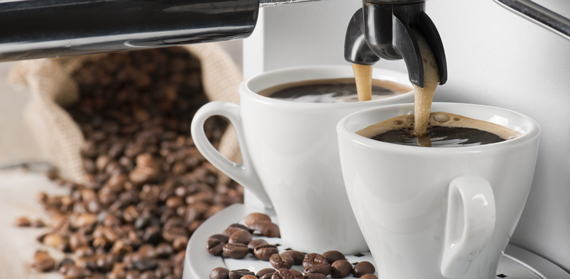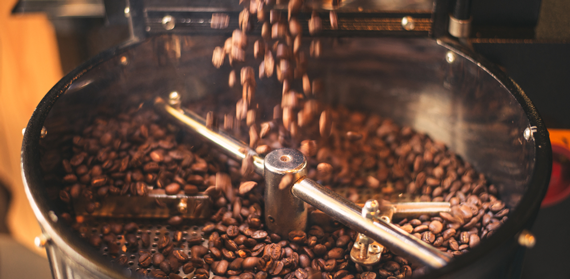Guest post by Jennifer Ferreira
While most people these days can tell their cappuccinos from their americanos, they may not be quite as familiar with the differences between aeropress, chemex, V-60 and cold-drip coffee. These are all different brewing methods, often found in the independent, speciality coffee shops which are part of a growing phenomenon: the “third wave” of coffee.
The first wave began at the turn of the 20th century, when coffee consumption grew significantly with the appearance of instant coffee, which made the drink a household staple. The second wave came with the rise of coffee shops and growth in popularity of the large, high-street coffee chains such as Starbucks that we are now so familiar with.
Now, people are seeking to understand more about the origin of their brew, and have begun to treat coffee as an experience, rather than a commodity. In this third wave, coffee is seen as an artisan or craft product, like fine wine. As with grapes, the way that coffee beans are grown, harvested, roasted and brewed are all considered important processes, when creating the perfect cup of coffee.
A growing industry
Today, around one in five people visit a coffee shop on a daily basis in the UK – up from one in nine in 2009. This is in part due to the rapid expansion of global coffee chains, and the movement of other food retailers into the coffee market, such as McDonalds with their McCafe range. But there has also been a significant rise in the number of independent coffee shops. The coffee shop industry is big business, estimated to be worth £7.2 bn in in turnover for 2014. Last year, there were more than 18,000 outlets across the UK – a number expected to grow to over 27,000 by 2020.
Right now, the UK market is still dominated by the big three: Starbucks, Costa and Caffè Nero. But there has been a significant growth in the number of speciality coffee shops, indicated by the increasing number of independent coffee house guides, including in London, the South West and the North. This in turn has fuelled the growing popularity of a number of coffee festivals (the London Coffee Festival, Cup North and the Edinburgh Coffee Festival are just some examples).
Skilled-up baristas
At the heart of the third wave coffee shops are the baristas, and their ability to use a range of tools and equipment to make a coffee that is acceptable to even the most knowledgeable connoisseur. For an independent coffee shop, having skilled baristas is key to producing premium, artisan coffees. The most skilled baristas even compete at various international festivals such as the London Coffee Festival’s Coffee Masters competition.
The professionalisation of the barista role has been recognised with the formation of bodies such as the Australian Specialty Coffee Association and the Specialist Coffee Association of Europe, which run competitions and offer accredited training in the sensory evaluation, roasting and brewing of coffee.
The skills of the barista are key to unlocking the world of third wave coffee, and providing the customer with a huge new variety of choices; from beans to brewing method. Many coffee shops will source their beans from their own preferred independent roaster: examples include Origin, Square Mile, Volcano Coffee Works or Ancoats. And many roasters will have one or two stores of their own, as well as supplying others.
When it comes to third wave coffee, the brewing method is as important as the coffee itself. Options include the aeropress (a device which involves forcing coffee through a filter using a plunger), chemex or V-60 (both containers where coffee is poured through a filter), or cold-drip coffee. Baristas must also carefully control the quantity and heat of water and milk used in each cup.
Coffee, consumption and city life
As Adam Smith highlighted in a recent article, coffee shops are not a new phenomenon in the UK. In fact, they have a rich history dating back to the 18th century, providing spaces for conversation as well as consumption. Coffee shops are now ubiquitous on the UK’s high streets, and form an important component of urban centres. They have been recognised as significant economic drivers, boosting local economies by between 2% to 4%.
But perhaps most importantly, coffee shops are becoming social venues. Increasingly, they are used not just as spaces of consumption, but as “third spaces”: an alternative to both work and home. As a part of the Spaces of Community project currently in progress at Coventry University, we are finding that in many urban areas, cafes have become vital community hubs, providing spaces for people to meet, socialise, work, play, and relax. The coffee shops of the third wave are about much more than just getting your daily caffeine fix.
Check out more from the ‘Spaces of Community; Exploring Dynamics of the UK Café Industry’ project from the Centre for Business in Society at Coventry University.
Originally written for ‘The Conversation’.





Comments are disabled